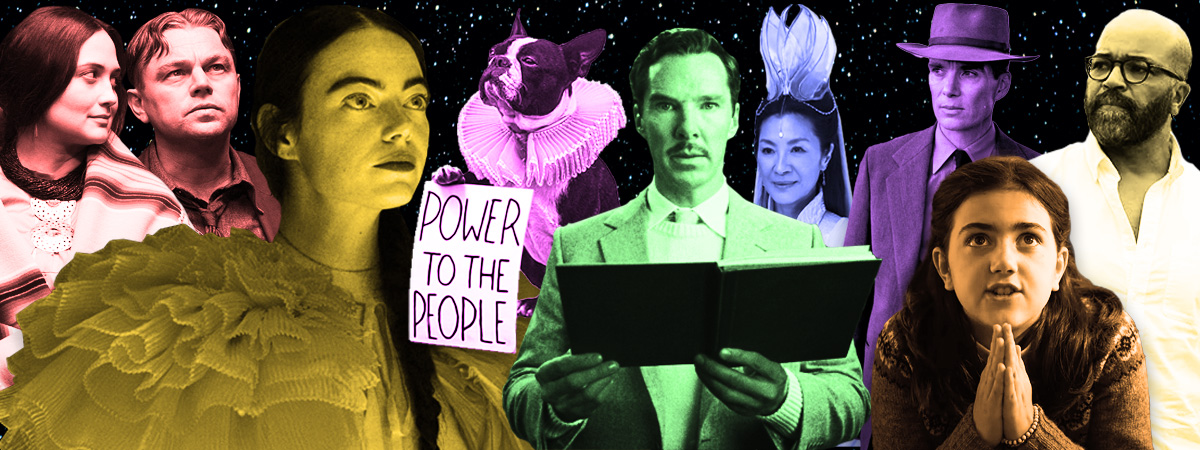
The 15 Best Literary Adaptations of 2023
You Might Say We’ve Been Blessed
Say what you will about 2023, but the year did bring us some top-notch book-to-screen adaptations, from the long-awaited film version of Are You There God? It’s Me, Margaret. in the spring to Oppenheimer in the summer, Killers of the Flower Moon in the fall, and American Fiction and Poor Things here at the end. Lit Hub’s film critics have been voting on their favorite adaptations from 2023, presented here for your consideration. And a big shoutout goes to The Color Purple, which premieres on December 25th. We’ll see you at the theater! (In spirit, of course.)
*
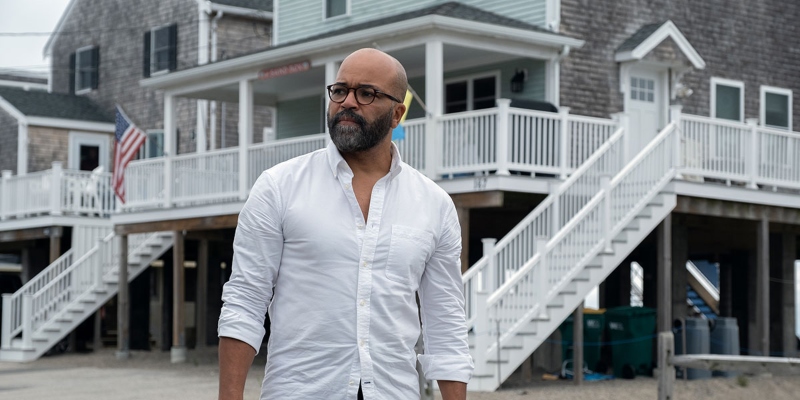 Orion Releasing LLC
Orion Releasing LLC
American Fiction
Based on: Erasure by Percival Everett
The promos for American Fiction will have you believe that it’s simply a satire, but it’s not. Don’t get me wrong, it’s a razor-sharp, rip-roaring send-up of the publishing industry, the literary world, and the fake-woke approach to race in liberal America, but I also want to say upfront that, like its source text, it is an incredibly moving, quite sad story about growing older, about coming to terms with who you are (personally and publicly).
It’s a film whose worth isn’t tied only to its successful commentary or keen referentiality, but its understanding that the absurdities of life exist within life, and that life is often sad and lonely and full of regret. Like its scintillating source text, American Fiction is kaleidoscopic in its insights and interrogations about life and identity, and especially when these things get further complicated by the beasts of capitalism, commercialism, and media.
–Olivia Rutigliano
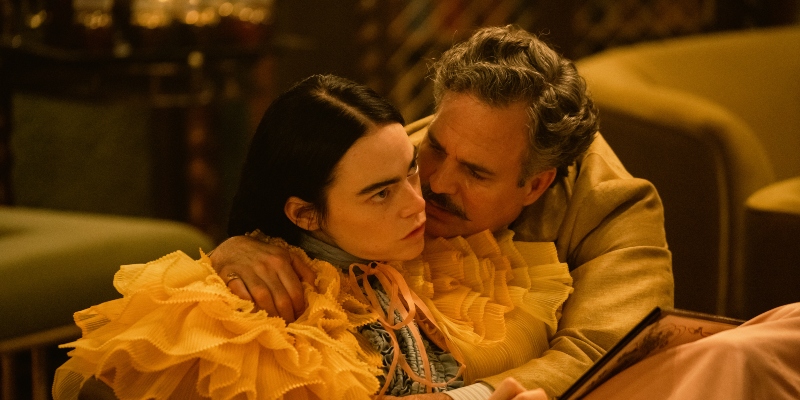 Searchlight Pictures
Searchlight Pictures
Poor Things
Based on: Poor Things by Alasdair Gray
Poor Things is definitely Lanthimos’s best English-language film, most likely his best film overall. A neo-Frankenstein tale about female desire based on the 1992 novel Poor Things: Episodes from the Early Life of Archibald McCandless M.D., Scottish Public Health Officer by the postmodern writer Alasdair Gray, the film follows the adventures of Bella Baxter (Emma Stone), a human created by the scientist Dr. Godwin Baxter (Willem Dafoe). At the start of the movie, her brain is at the developmental level of an infant, despite her adult anatomy; over the course of the film, her mind grows to match her physical age and bodily urges. With its Gaudí-esque Victorian setting, Poor Things presents a dreamlike, imaginary history of the era that birthed the modern Western world; Bella bounces around the great ideas and minds of the moment, like a philosophical Forrest Gump, she assimilates them. It’s not a perfect movie, but it is an interesting one.
–Olivia Rutigliano
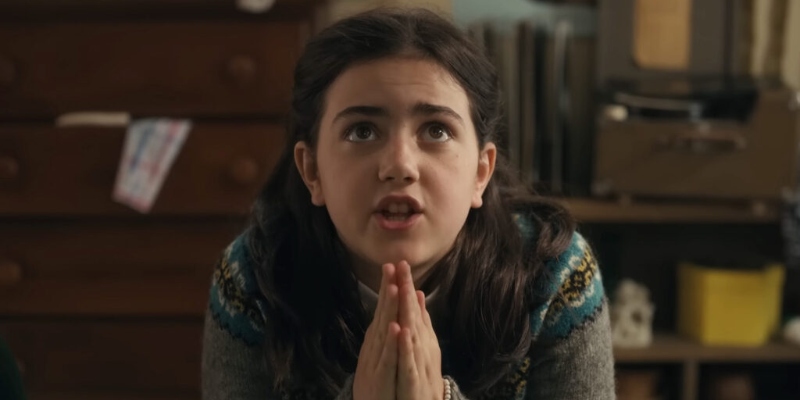 Lionsgate
Lionsgate
Are You There God? It’s Me, Margaret.
Based on: Are You There God? It’s Me, Margaret. by Judy Blume
First, a confession: I didn’t read Judy Blume’s Are You There God? It’s Me, Margaret. until a week before the movie premiered. (I was a Beverly Cleary gal through and through; not that the two are mutually exclusive, that’s just how the cookie crumbled.) Anyway, having not grown up on AYTGIMM in no way precluded me from absolutely adoring this film. I went in optimistic thanks to my colleague Olivia’s review and left positively chuffed: writer-director Kelly Fremon Craig nailed it, and then some.
Certainly, Fremon Craig was operating under pressure—Blume had refused to sell the film rights for 49 years, until the right filmmaker came along—but not only does she stay cool under pressure, she actually made a film that Blume called better than the book. Mainly, I think, that’s because Margaret’s grandmother (played by a career-high charming Kathy Bates) and mother (played by a sweetly melancholic Rachel McAdams) get their own storylines in the film, making it a much more multigenerational viewing experience. But Abby Ryder Fortson as Margaret manages to never be dimmed by the Hollywood powerhouses around her; she captures the awkwardness and frustrations of adolescence without missing a beat—ditto for her comedic timing. This was one of my favorite movies of the year. If you haven’t seen it yet, I must INSIST.
–Eliza Smith
 Universal Pictures
Universal Pictures
Oppenheimer
Based on: American Prometheus by Kai Bird and Martin J. Sherwin
Oppenheimer is a biopic that should not work as well as it does—it’s never really a good idea for biopics to attempt to do what biographies do (and this movie is based on a doozy of a biography). A biography is responsible for capturing a sense of a person, often across their whole lives. If a movie does that, it might lack an arc. Because people’s natural lives don’t have arcs. But Oppenheimer manages to present the life of Manhattan Project supervisor J. Robert Oppenheimer across decades while also tracing character development, having a thesis, and making an argument. The point of Oppenheimer (and the realization that Oppenheimer has) is about the impossibility of keeping things at the level of the theoretical. Oppenheimer oversubscribed to theory as a methodology, and by the time he realizes that there’s no such thing, it’s too late. Incredible.
–Olivia Rutigliano
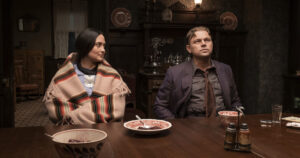 Apple Studios
Apple Studios
Killers of the Flower Moon
Based on: Killers of the Flower Moon by David Grann
Sorry to be that guy, but Martin Scorsese really does do it like no other. Killers manages to capture all the intricacy of David Grann’s 2017 book without feeling like an overproduced info dump. It’s a dark and complex love story, an emotional epic, a biting take on the Western genre. It renders an unspeakably immense tragedy through a small cast of characters. Scorsese brings humanity to the screen in a way that feels visceral and raw and painful and true. He gives Killers room to breathe, he lets the story take its time. So yes, the movie is three-and-a-half hours long—but sometimes that’s just how long it takes. It’s worth it, I promise.
–McKayla Coyle
 Neon
Neon
How to Blow Up a Pipeline
Based on: How to Blow Up a Pipeline by Andreas Malm
This is an interesting adaptation, as it doesn’t seek to directly adapt the original work so much as put the work into action. Andreas Malm’s How to Blow Up a Pipeline is a philosophical manifesto that calls for direct action and environmental terrorism in order to save the planet. The movie is a fictional, narrative film about a group of young people who decide to take direct action by literally blowing up a pipeline. It’s smart and fast-moving and has the shape of an action heist movie with the heart of a cli-fi drama. The movie does a great job of taking a philosophical text and applying it to the real world. I’d love to see more of this type of adaptation, the kind that really engages with the definition of adaptation.
–McKayla Coyle
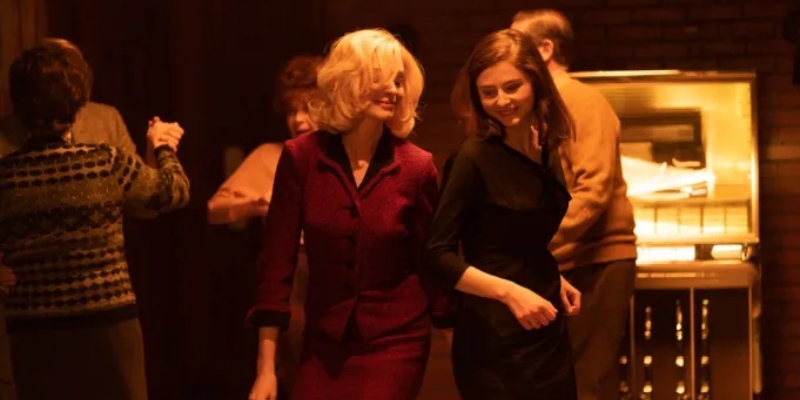 Neon
Neon
Eileen
Based on: Eileen by Ottessa Moshfegh
Eileen! This adaptation of Ottessa Moshfegh’s debut thriller, which is basically perfect almost all of the way through, snuck onto my radar only a few weeks ago. Anne Hathaway rocks a portrayal of a sultry, secretive psychologist at a young men’s prison in Massachusetts. She, Rebecca, is the first bright spot in a while that Eileen (Thomasin McKenzie), who works in the prison, has experienced, and it’s not long before Eileen begins to grow veeeeeery interested in her. The movie builds its tension very well, but a late-in-the-film monologue from Marin Ireland brings the house down. (If I have any issues with the narrative of Eileen, they are ones that I also have about the book; let this promise you textual fidelity.) Still, I found the movie more psychological, a deeper, more immersive bath in the themes of the original novel.
–Olivia Rutigliano
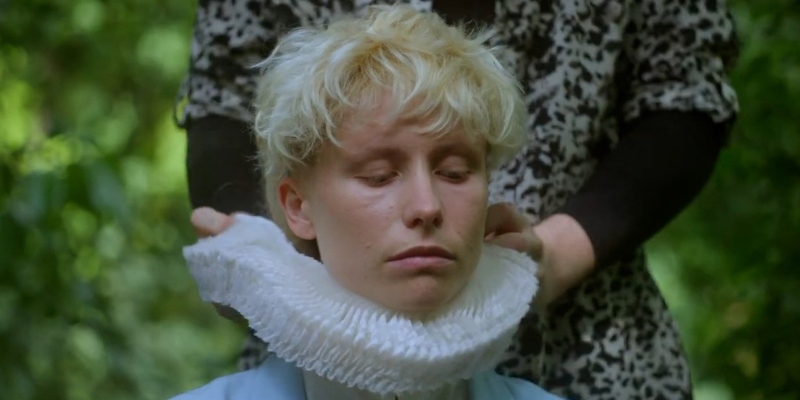 Janus Films
Janus Films
Orlando, My Political Biography
Based on: Orlando by Virginia Woolf
For Orlando, in Woolf’s eponymous titled book, time, gender, and the act of writing become both inextricably linked and trans: ever ongoing, moving across and beyond binaries with unbridled delight. And yet, the topic of Orlando’s body as a trans body has never been so culturally or cinematically underscored until Paul B. Preciado’s documentary Orlando, My Political Biography (2023) premiered at Berlinale this year.
…
Preciado’s film is not solely a retelling of Woolf’s story; it is also about Preciado’s experience as a trans man navigating state apparatuses, such as psychiatry and pharmacology, which systematically inflict violence and erasure on bodies that are not cis, male, middle-class, or white. In the spirit of performative, self-reflexive documentaries like Kitty Green’s Casting JonBenet (2017) and Ruth Beckermann’s Mutzenbacher (2022), Preciado’s film is a meta-commentary on its own making, just as Woolf’s novel is as much about the act of writing a biography as it is the story of Orlando’s life. We see multiple trans actors auditioning for, or acting the part of, Orlando.
In between reading aloud from Woolf’s book, they also share their own histories with and hopes for dating, hormones, clothing, surgery, and utopian futures. One, a high school student, remembers his first crush as various crew members change the set design and lighting behind him. Culled from a panoply of voices and perspectives, Orlando, My Political Biography champions the ways in which writing is an inherently communal act. As Preciado says in voiceover, “Every individual life is a collective history.”
Read our critic’s full review here.
–Hannah Bonner
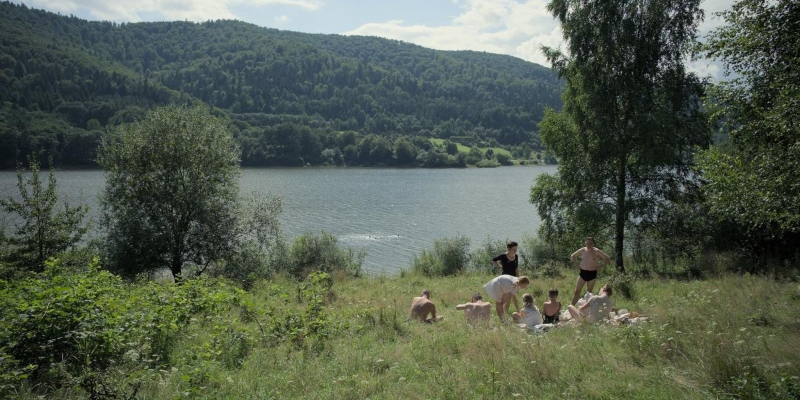 A24
A24
The Zone of Interest
Based on: The Zone of Interest by Martin Amis
Jonathan Glazer has finally returned to cinema after a decade-long hiatus. His newest feature, The Zone of Interest, is nothing short of a masterpiece. The film is a fully immersive experience into the domestic life of real-life camp commandant Rudolf Höss (played by Christian Friedel), his wife Hedwig (Sandra Hüller), and their family who live outside of Auschwitz. Loosely based on the 2014 novel of the same name by Martin Amis—who passed away the day after the film’s premiere—Glazer takes many liberties with the source material, using it more as a foundation for his vision as opposed to creating a straightforward translation to the screen.
Glazer succeeds at making a Holocaust film that is completely unlike any we have seen before. The violence and brutality occuring within the camps that are often depicted on screen isn’t portrayed in the film, which uses the Höss family’s indifference to what happens beyond the walls of their idyllic home as a way to communicate the full scope of their evilness. We see them throw parties, have picnics, and spend time tending to their sprawling garden, while the outside horrors continue to loom.
Read our critic’s full review here.
–Jihane Bousfiha
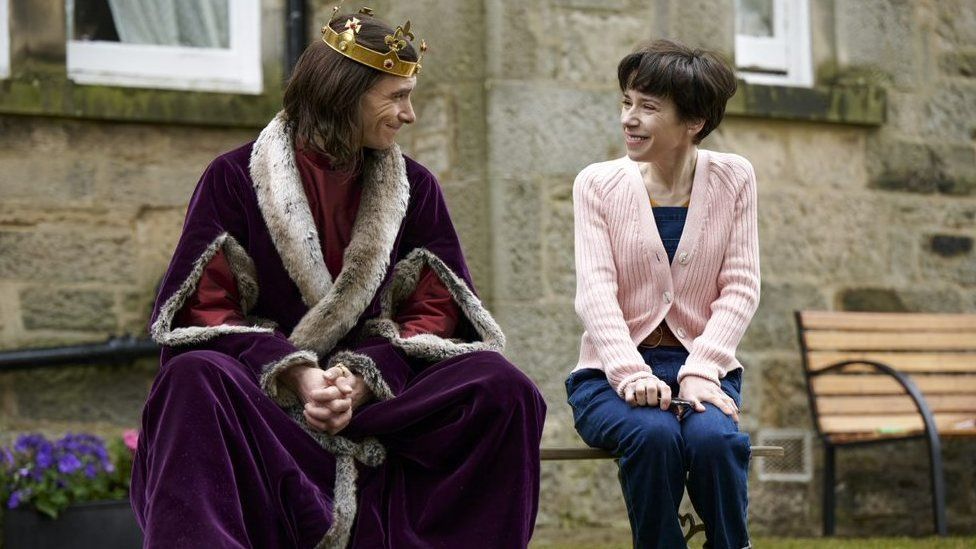 Pathe UK
Pathe UK
The Lost King
Based on: The King’s Grave by Philippa Langley and Michael Jones
The Lost King! This absolutely wonderful movie is an adaptation of The King’s Grave: The Search for Richard III by Philippa Langley and Michael Jones. Written by Steve Coogan and Joe Pope and directed by Stephen Frears, it is the beautiful, triumphant story of one of the most important historical discoveries of all time, completed by an amateur in the face of constant belittlement by the academic establishment. Philippa, played by Sally Hawkins, is middle-aged and working as a marketing executive when she discovers a passion for Richard III and grows invested in tracking down his remains, which have been lost to history.
She, who suffers from chronic illness that people constantly dismiss as made-up, is told time and time again that a gravesite for the maligned (also disabled) monarch might not even exist, and that many (more qualified) others have tried and failed to locate it. But she does not give up…. and, thanks to her phenomenal research, she finds him! The thing is, the film argues, that if a story about a passionate amateur who makes one of the most important historical discoveries of the last fifty years does in fact feel too contrived or unrealistic or far-fetched for you, then you might need some serious deprogramming. The Lost King is a clear condemnation of the kind of gatekeeping that governs academic spaces, as well as the psychological frameworks that exist in our own society that result in not taking people (especially if they are disabled) seriously.
–Olivia Rutigliano

Nimona
Based on: Nimona by ND Stevenson
I read the Nimona graphic novel when I was in high school and it was one of those books that stuck with me. I think of it often and fondly. It was a story that reintroduced me to how a story could be and what it could do. The animated Nimona movie adaptation is similarly thoughtful and weird and fun. It’s a queer kids movie that doesn’t beat you over the head with pedantic explanations and textbook definitions of queerness.
Instead, Nimona simply allows its characters to be queer and complicated and depressed and more than a little feral. As a queer person, I actually felt seen and represented. This is the kind of movie that would have Changed Me as a kid, and that I’m still grateful for as an adult. It’s also genuinely a lot of fun.
–McKayla Coyle
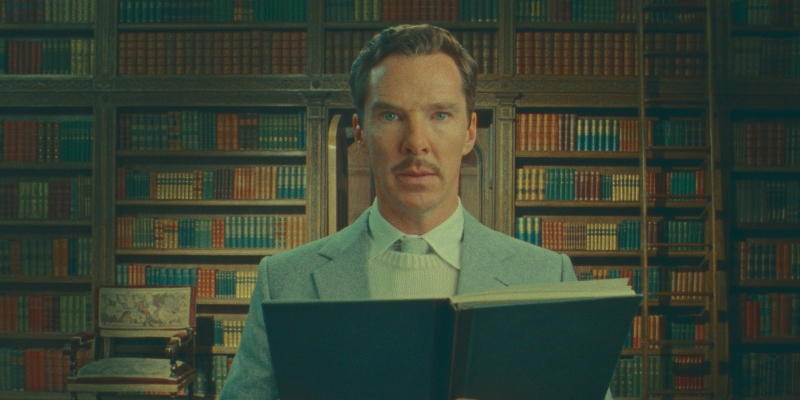 Netflix
Netflix
The Wonderful Story of Henry Sugar / The Rat Catcher / The Swan / Poison
Based on: The Wonderful Story of Henry Sugar and Six More by Roald Dahl
I’m a Wes Anderson fan forever and always—Asteroid City was one of the best films of the year, and maybe the closest we’ve ever gotten to understanding the animating passions of the man behind the always-centered camera—and the marriage of his careful whimsy and Roald Dahl’s acerbic fables continues to bear fruit. This surprise quartet of… well, what are they? Individual short films? Or are they four pieces that make up a whole, as four short stories might sit next to one another to make a short story collection?
Whatever they may be, and despite Netflix (in a total but unsurprising failure of imagination) having no clue how to package or explain these, they are trinkets that nevertheless shine interesting light on both of their creators. Anderson leans into his theatricality here, giving the pieces a real “kids putting on a show” energy, and the result is sometimes silly (these must have been a blast for the actors involved) but never slight. I hadn’t read these stories since I was a kid and going back to them, first through Anderson’s lens and then on the page, reminded me of why Dahl’s work continues to excite children and challenge adults—and why Anderson continues to be divisive as well. But I’d take a thousand half-as-good curios from unswerving artists like Anderson in lieu of the vapid and unnecessary boardroom-ified misuse of IP that was Wonka.
–Drew Broussard
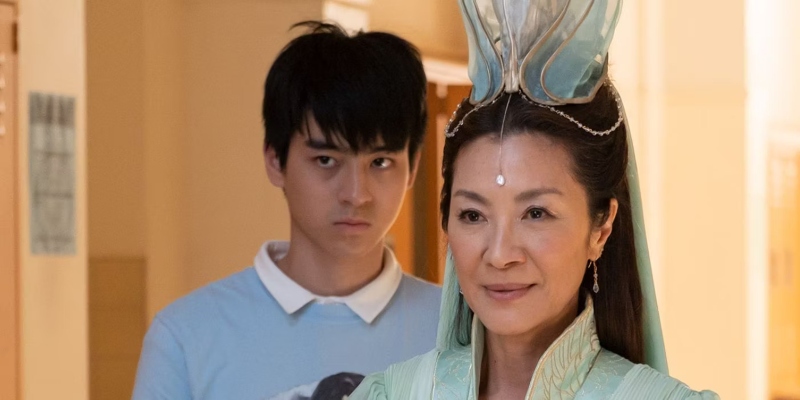 Disney+
Disney+
American Born Chinese
Based on: American Born Chinese by Gene Luen Yang
The series moves between the realms of heaven and the American suburb, quickly establishing Jin’s dilemma: he is ready to grow up, but he doesn’t know what kind of person he is. He is torn by the choices that seem binary to him: whether he should join the soccer team or the cosplay club, be a jock or a nerd, act American or Asian. As the series moves forward with its multiple storylines and complex relationships between its characters, Jin continues to contemplate his choices and figure out who he is.
Bringing a colorful pantheon of Chinese folklore heroes, the show looks, sounds, and feels like a reunion of long-separated genres of Asian and Asian American cinema. Family drama flickers in and out of action-packed Hong Kong kung fu movies and Chinese fantasies with nonsequitur humor, creating a soundscape and visual collage that feel familiar in the Asian American experience.
Read our critic’s full review here.
–Yao Xiao
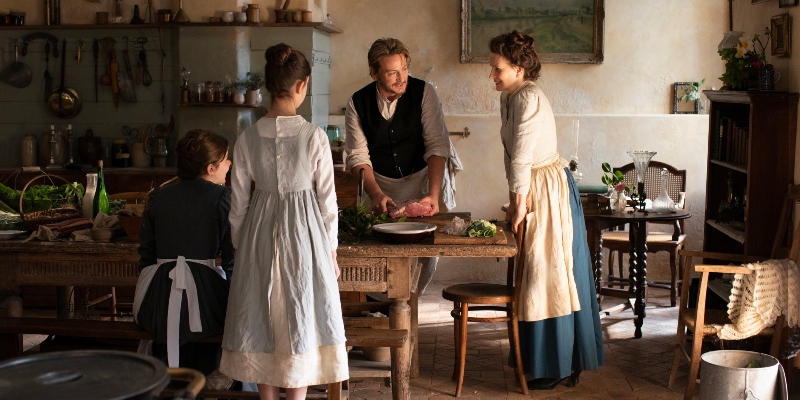 Curiosa Films
Curiosa Films
The Pot-Au-Feu (The Taste of Things)
Based on: The Passionate Epicure by Marcel Rouff
Loosely based on Marcel Rouff’s 1924 novel The Passionate Epicure, The Pot-Au-Feu (renamed The Taste of Things ahead of its US release) emerged as an unexpected standout at this year’s Cannes Film Festival—so much so that Anh Hùng took home the prize for Best Director. A mouthwatering feast for the eyes, the film is a sensual experience that delicately captures the ritualistic act of cooking through the characters of Dodin Bouffant (Benoît Magimel) and Eugenie (a sublime Juliette Binoche).
Dodin, who has been nicknamed “the Napoleon of culinary arts,” and his personal cook/collaborator of over 20 years have a relationship built on trust and a mutual respect for each other’s craft. He spends his days developing recipes, and she flawlessly executes them with the assistant of their maid Violette (Galatea Bellugi) and Violette’s young niece, Pauline (Bonnie Chagneau-Ravoire). Leisurely paced, the 2.5-hour film opens with a 40-minute sequence dedicated to the pair putting together an extravagant four-course meal for Dodin and a small group of his friends. Watching someone maneuver through a kitchen as they chop, stir, roast, braise, sear, strain, and bake food has never looked more mesmerizing.
Read our critic’s full review here.
–Jihane Bousfiha
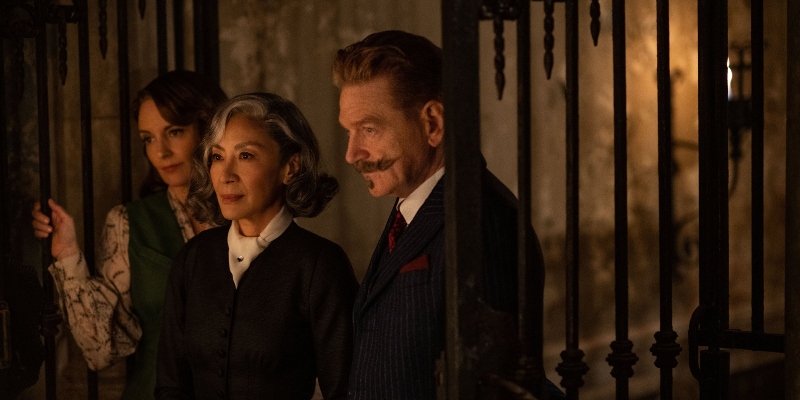 20th Century Studios
20th Century Studios
A Haunting in Venice
Based on: A Haunting in Venice by Agatha Christie
Look, even if you don’t like Kenneth Branagh’s Poirot, you can’t deny that A Haunting in Venice was the clear best of his three Agatha Christie adaptations, an elegant supernaturally-tinged mystery (very) loosely adapted from a lesser-known Christie novel, Hallowe’en Party. But Branagh’s film is a carnival(e) of cinematography and camerawork, a spooky visual extravaganza. I guess the third time really is the charm!
–Olivia Rutigliano












